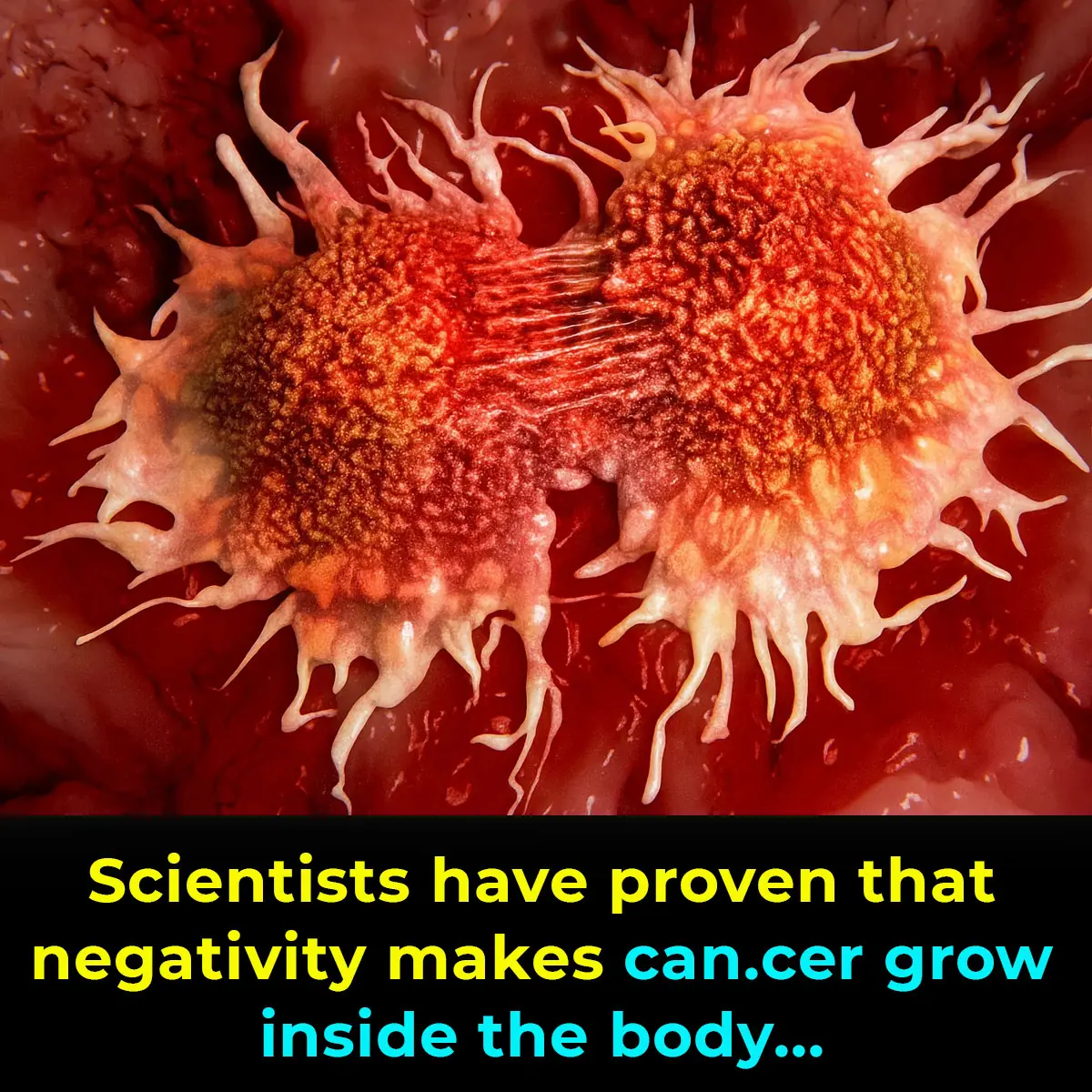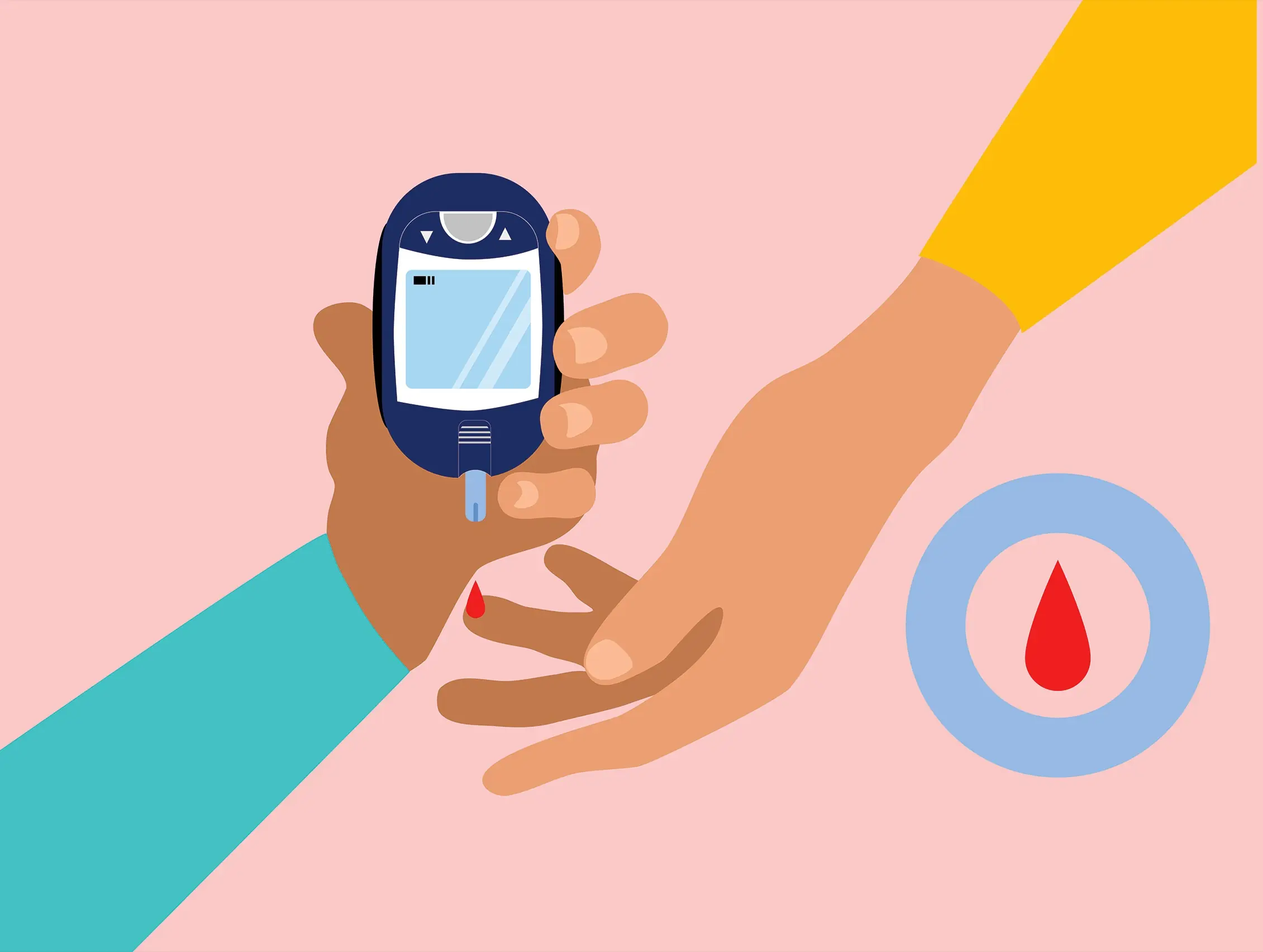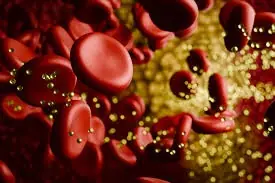
Scientists Have Proven That Negativity Makes Cancer Grow Inside The Body
The Power of Forgiveness: How Letting Go of Negative Emotions Can Improve Your Health
We all experience negative emotions from time to time, but these feelings can have a much greater impact on your health than you might think. Every time you dwell on regrets, hold onto resentment, or replay painful memories, your body suffers just as much as your mind. This is why harboring negative emotions can contribute to long-term diseases. However, there’s one simple solution: forgiveness. The problem, though, is that our culture often associates forgiveness with weakness or submission, making it difficult for many to fully embrace it and forgive those who have hurt them.
Clearing Negative Energy: The Value of Forgiveness 
The Greater Good Science Center defines forgiveness as “a conscious, deliberate decision to release feelings of resentment or vengeance toward someone who has wronged you, regardless of whether they deserve your forgiveness.” It’s crucial to understand that forgiveness is a process, not a one-time event. This is why there’s a distinction between decisional forgiveness and emotional forgiveness.
Some researchers explain the difference as follows: “Decisional forgiveness involves the behavioral intention to let go of an unforgiving attitude and respond differently to someone who has wronged you. Emotional forgiveness, however, involves replacing negative emotions with positive, other-oriented feelings. Emotional forgiveness results in psychophysiological changes and has more direct effects on health and well-being.”
Studies have found that a forgiving attitude is linked to better psychological well-being and subjective happiness. Additionally, forgiveness is connected to improved physical symptoms, fewer medications, better sleep quality, less fatigue, and fewer physical complaints.
Furthermore, forgiveness is beneficial for heart health. A study in the American Journal of Cardiology showed that anger and negative emotions have cardiotoxic effects, while forgiveness appears to have a cardioprotective effect. The researchers concluded, “These findings suggest that interventions aimed at reducing anger and promoting forgiveness could be clinically relevant.”
Forgiveness and Health: How It Improves Your Life
Researchers from Hope College examined 35 female and 36 male participants to study the effects of revisiting painful memories and grudges. They observed factors such as blood pressure, heart rate, facial muscle tension, and sweat gland activity.
Participants were then asked to imagine forgiving those who had hurt them. The results showed that "forgiving thoughts led to greater perceived control and lower physiological stress responses." Simply put, negative emotions raised stress and sweat production, while forgiveness reduced blood pressure and relaxed facial muscles.
The study further emphasized that “chronic unforgiving responses may erode health, while forgiving responses may enhance it.”
Forgiveness and Cancer: A Surprising Connection
Unforgiveness has even been classified as a disease by Dr. Steven Standiford, chief of surgery at the Cancer Treatment Centers of America. He argues that holding onto anger and refusing to forgive can negatively impact a person’s health and even hinder their response to treatment.
Dr. Standiford states, "It’s important to address emotional wounds, as they can impact how a person reacts to treatments, and even their willingness to pursue them."
Regarding cancer, forgiveness may also play a role in prevention. Dr. Michael Barry, author of The Forgiveness Project, suggests that 61% of cancer patients struggle with forgiveness. He explains, “Holding onto negative emotions like anger and hatred creates chronic anxiety, which triggers the release of excess adrenaline and cortisol. This depletes the production of natural killer cells, your body’s primary defense against cancer.”
Putting Forgiveness Into Practice
Forgiveness doesn’t have to be complicated. It can be as simple as releasing hurtful memories and recognizing that those who have hurt you are human too. However, before you can forgive others, it’s crucial to forgive yourself for holding onto resentment for so long. Letting go of the past can make you feel healthier and lighter than ever before.
News in the same category


4 Signs Your Kidneys Might Be in Serious Trouble

The Potent Remedy: Turmeric and Honey as a Natural Antibiotic

If Your Legs Cramp at Night, You Need to Know This Immediately!

Why You Should Always Close Your Bedroom Door Before Going to Sleep

The FIRST Sign of HIGH BLOOD SUGAR Is…

The Shocking Effects of Sleeping Less Than 7 Hours

Scientists Have Discovered a “Kill Switch” in The Body That Can Destroy Any Cancer Cell

Snoring Isn't Just Annoying: It Could Be a Serious Health Warning

7 silent signs of high blood sugar most people miss

The #1 mineral deficiency linked to strokes (and how to fix it)

Tonsil Stones: Causes, Symptoms, and Natural Remedies

Your Heart Emits a Magnetic Field 100x Stronger Than Your Brain – And It Can Be Detected 3 Feet Beyond Your Body

How Your Body Secretly Tells You You're Stressed

New Study Shows That Sitting in Silence for Only Two Hours Can Trigger Significant Growth in New Brain Cells

Foods That Can Quietly Drain Calcium From Your Body

Just Simply Looking at a Sick Person Is Enough to Trigger Your Immune Response, Study Shows

Scientists Discover an “Off Switch” for Cholesterol — And It Could Save Millions of Lives

Why Does Your Eye Twitch Randomly? An Eye Doctor Explains
News Post

Nighttime Habits That Increase Your Risk of Stroke

Add a few drops of essential oil to the water used to clean the floor. Knowing the benefits, every family wants to follow suit.

Put garlic at the bedside, its "golden" uses, anyone who reads this will want to try it.

Honey, Lemon, Onion, Garlic & Ginger: The Daily Spoonful That Works Wonders

Vitamin E Oil uses for Skin – Glowing Skin, Dark Circles & Wrinkles

4 toxic plastic items

The Chicken Seller Said: "These 3 Types of Chicken Meat, No Matter How Cheap They Are, I Never Buy..."

4 Signs Your Kidneys Might Be in Serious Trouble

The Potent Remedy: Turmeric and Honey as a Natural Antibiotic

If Your Legs Cramp at Night, You Need to Know This Immediately!

Hanging a Towel on the Door Handle Before Bed: Unexpected Benefits That Few People Know

Why You Should Always Close Your Bedroom Door Before Going to Sleep

The FIRST Sign of HIGH BLOOD SUGAR Is…

The Shocking Effects of Sleeping Less Than 7 Hours

Scientists Have Discovered a “Kill Switch” in The Body That Can Destroy Any Cancer Cell

Snoring Isn't Just Annoying: It Could Be a Serious Health Warning

It grows everywhere, but this stunning plant hides a dark and dangerous secret… 💬👀

Cutting Plastic Bottles for the Kitchen: Amazing Uses You’ll Wish You Knew Sooner

CCF Detox Drink For Glowing Flawless Skin
